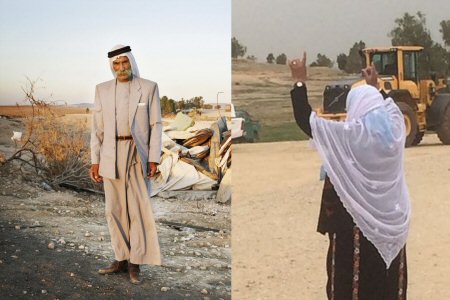Israeli occupation forces demolished the Palestinian Bedouin village of Al-Araqib, in Al-Naqab (Negev), southern Israel for the 120th time.
Palestinian sources said that the Israeli land authority, accompanied by Israeli police and bulldozers, raided the village and demolished the Palestinian homes.
An Israeli court ruled, last month, that six residents of Al-Araqib must pay 262,000 shekels (more than $72,000) for previous demolition costs, in addition to 100,000 shekels ($27,693) to cover the costs of the state’s lawyer.
It was only the latest payment in which the village has had to compensate Israel for its routine demolitions in the village, according to Days of Palestine.
According to Al-Araqib residents, before the latest court ruling, the village was ordered to pay more than two million shekels (approximately $541,000) for the cumulative cost of Israeli-enforced demolitions carried out against the village since 2010.
This village is one of 35 Bedouin villages considered “unrecognized” by the Israeli state. According to the Association for Civil Rights in Israel (ACRI), more than half of the approximately 160,000 Bedouins in the Negev reside in unrecognized villages.
The unrecognized Bedouin villages were established in the Negev soon after the 1948 Arab-Israeli war following the creation of the state of Israel.
Many of the Bedouins were forcibly transferred to the village sites during the 17-year period when Palestinians inside Israel were governed under Israeli military law, which ended shortly before Israel’s military takeover of Gaza and the West Bank, including East Jerusalem, in 1967.
Now, more than 60 years later, the villages have yet to be recognized by Israel, and live under constant threat of demolition and forcible removal.
Right groups say that the demolition of unrecognized Bedouin villages is a central Israeli policy aimed at removing the indigenous Palestinian population from the Negev and transferring them to government-zoned townships, to make room for the expansion of Jewish Israeli communities.
Search IMEMC: “Bedouin”

